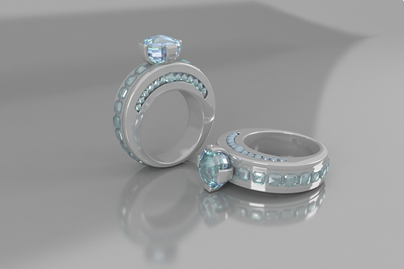
A gift by its nature is irrevocable. Under Michigan property law, a gift that is “completed” cannot be revoked by the donor and taken back. Generally, there are three necessary elements for a valid gift.
- (1) The donor must have the intent to pass title to the donee. It must be clear that it is not a loan or a bailment.
- (2) The donor must UNCONDITIONALLY deliver the gift either actually or constructively. The goal of the delivery is to put the gift within the control of the donee.
- (3) The donee accepts the gift.
How about an engagement ring? It certainly looks like a gift. The boyfriend proposes marriage to his girlfriend and she accepts the ring given to her. The ring is physically given to the girlfriend who wears it on her finger as a symbol of her promise to marry. But what if the engagement is broken off? Does the boyfriend get the ring back if the gift is irrevocable?
In Meyer v Mitnick, 244 Mich App 697; 625 NW2d 136 (2001), the Michigan Court of Appeals clarified the status of engagement rings if the marriage doesn’t go through. Mr. Meyer gave Ms. Mitnick a custom-designed engagement ring he purchased for $19,500.00 after she accepted his proposal to marry. Mr. Meyer later asked Ms. Mitnick to execute a prenuptial agreement but she refused and the engagement terminated. Mr. Meyer then asked for the ring to be returned but Ms. Mitnick declined on the basis that it was a gift.
The Michigan Court of Appeals determined that the engagement ring was a conditional gift given in contemplation of marriage. If the engagement is terminated by the donee or by mutual agreement of the parties, the donor is entitled to recover the ring. However, if the possibility of marriage ended because of the donee’s death or if the engagement is unjustifiably broken by the donor, then the donee or the donee’s estate will be permitted to retain ownership of the ring. Since Mr. Meyer and Ms. Mitnick mutually agreed to end the engagement due to the disagreement over the prenuptial agreement, then the ring should rightfully return to Mr. Meyer.
Once the marriage occurs, the condition is fulfilled and the gift is completed. The engagement ring becomes the separate property of the donee. In the event that the parties divorced, the engagement ring would generally be considered her separate property to keep. There is no duty to return to gift if the marriage was carried out, even if it is subsequently terminated.
The premise of a gift is that there is no expectation from the giver that the property would be returned to his ownership. If it is an unconditional gift, there is no question that it becomes the permanent, separate property of the donee. If it is a conditional gift and the condition is not fulfilled by no fault of the donor (except for the donee’s death), then the property should be recoverable by the donor. If you have questions about the legal status of a gift you had either given or received, do not hesitate to contact the property law attorneys at Kershaw, Vititoe and Jedinak, PLC.





